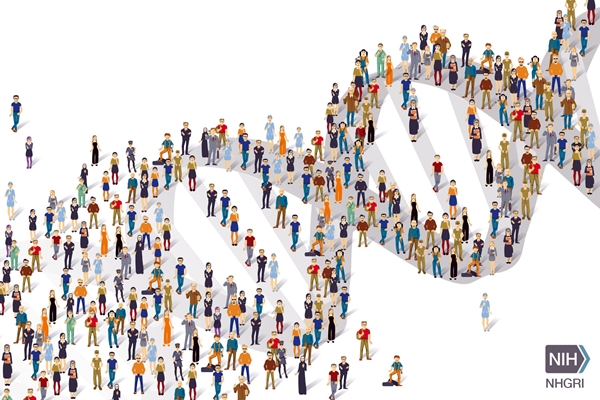19 Oct. 2023. An historically Black medical college and pharmaceutical industry group began a program to increase the numbers of people of African descent in genomic databases. The initiative brings together Meharry Medical College in Nashville with four drug makers that aim to make research for drug development more representative of diverse populations, and also help people of African ancestry make better health decisions with their genetic data.
The companies AstraZeneca, Novo Nordisk, and Roche with the Regeneron Genetics Center are joining with Meharry Medical College in the Together for CHANGE initiative — CHANGE stands for Changing Healthcare for People of African Ancestry through an InterNational Genomics & Equity. The project is managed by a newly formed group, Diaspora Human Genomics Institute or DHGI, cofounded by Meharry as its academic partner.
The project seeks to address the low representation of people from Africa and descendants worldwide in genomic research, which leads to documented disparities in health outcomes. DHGI cites data showing less than two percent of genetic data today comes from people of African descent, leading to only a 25 percent rate of predicting disease risks in Black people based on genomic data. In addition, within African and descendants’ populations are a wide diversity of genetics, cellular, and molecular activity affecting risks of disease.
The Together for CHANGE goal is to build a database of de-identified genomics data from up to 500,000 volunteer participants of African ancestry. And the project plans to link the data to electronic health records, as well as make the databases available to researchers at historically Black colleges and universities or HBCUs in the U.S. DHGI also recognizes the need for increased counseling for individuals offering their genomic data, by establishing a training program for counselors and a fellowship in medical genetics at HBCUs. An ethics committee of Black community leaders, says DHGI, will advise the project.
First reference genome of African ancestry
Moreover, Together for CHANGE says it’s supporting increased genetic representation by a public education campaign among people with African ancestry to make more informed decisions about their health and protect their interests when participating in medical research. Plus, the group plans to increase exposure of school-age students to science, technology, and health careers.
Meharry Medical College formed the Together for CHANGE initiative with Regeneron Genetics Center, a division of the biopharmaceutical company Regneneron in Tarrytown, N.Y., as well as drug makers AstraZeneca, Novo Nordisk, and Roche. Each of the companies is making contributions valued at $20 million, with Regeneron Genetics Center or RGC also conducting genetic sequencing of submitted samples.
“People of African ancestry have been underrepresented in genomics studies,” says Aris Baras, who heads the RGC in a company statement, “which leads to clinical genetic testing that has less reference data and less confident testing results.” Baras adds, “genetic databases function best as global resources when they reflect humanity’s broad spectrum of ethnic and genetic diversity, so that the resulting research and medical innovation may benefit all populations.”
The project is also expected to spark more genomics research in Africa and at HBCUs. Anil Shanker, senior V.P. for research and innovation at Meharry Medical College notes that “researchers from historically Black colleges and universities and Africa will have access to the first-ever reference genome of African ancestry people to build collaborative projects at the intersection of genomics and health equity research that will ensure that the breakthroughs represent a healthier future for everyone, including the global Black communities that have historically been ignored.”
More from Science & Enterprise:
- Industry-Academic Center to Boost Rare Disease Therapies
- Genomics Company, Amazon Partner on Generative A.I.
- Advanced Encryption Shown to Enable Cancer Data Sharing
- Primate Genome A.I. Model IDs Human Disease Variants
- Rare Disease Search Adds Large Language Model A.I.
We designed Science & Enterprise for busy readers including investors, researchers, entrepreneurs, and students. Except for a narrow cookies and privacy strip for first-time visitors, we have no pop-ups blocking the entire page, nor distracting animated GIF graphics. If you want to subscribe for daily email alerts, you can do that here, or find the link in the upper left-hand corner of the desktop page. The site is free, with no paywall. But, of course, donations are gratefully accepted.
* * *


 RSS - Posts
RSS - Posts
You must be logged in to post a comment.